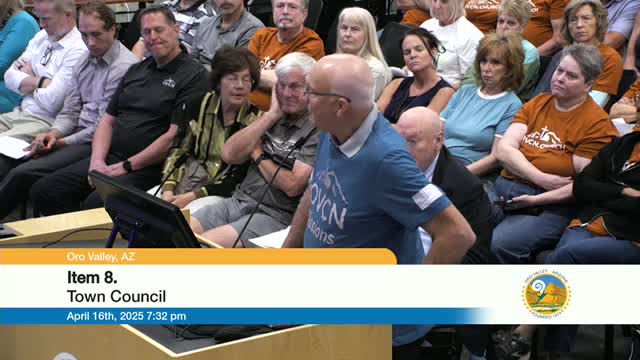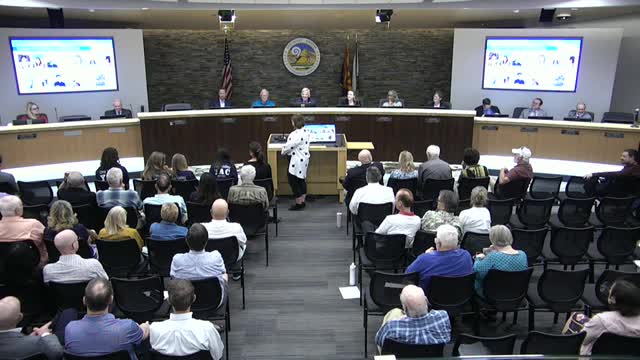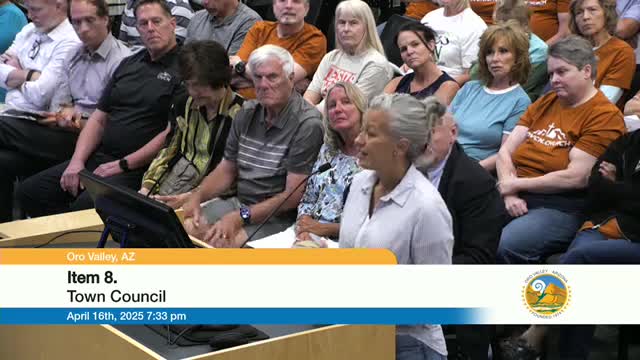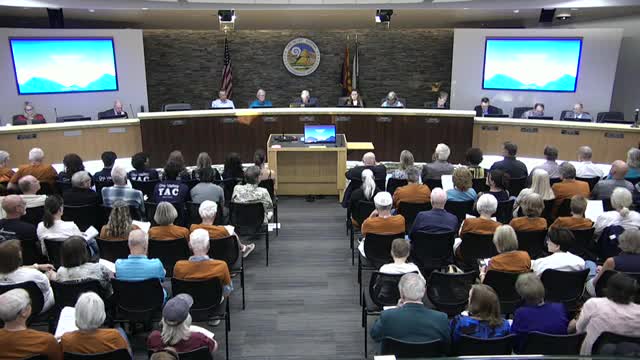Article not found
This article is no longer available. But don't worry—we've gathered other articles that discuss the same topic.

Council approves liquor license for Grain River Asian Bistro

Oro Valley approves WIFA loan to finish northwest recharge and delivery system

Oro Valley council backs 2.5-acre Vistoso Trails pond, will pursue phased work and reclaimed water

